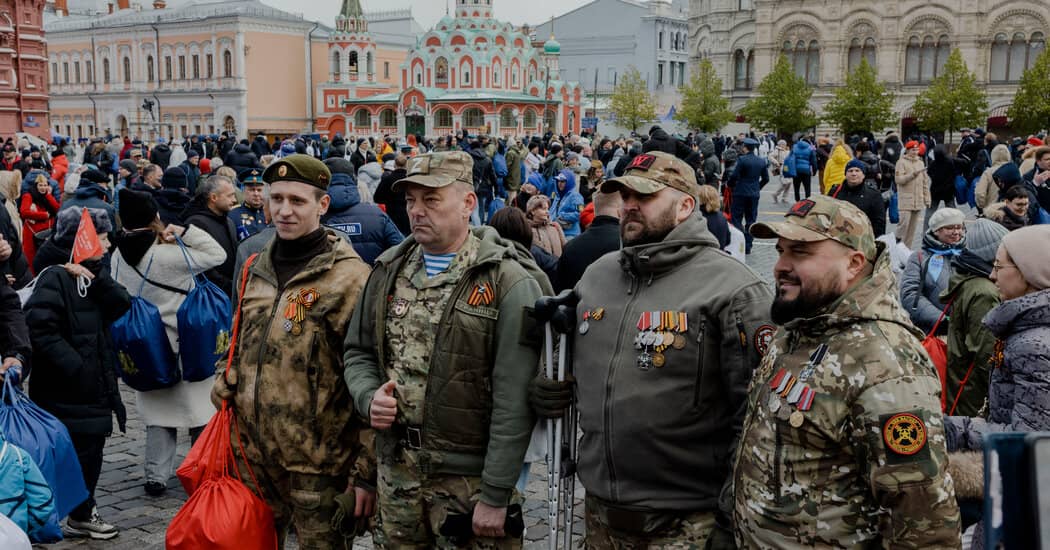Russia-Ukraine War
Russians who fought in Chechnya and Afghanistan came home to silence and stigma. There’s a very public push to make things different this time.
Valerie Hopkins and
Valerie Hopkins reported from Moscow and Alina Lobzina from London.
When Ilya Rusinov returned to the Russian work force after rehabilitating a vertebra damaged in the Ukraine war, his first job was teaching in a school.
But he had also launched a side project, a patriotic club he called Zveno, or “Squad,” that provides military training for different age groups, including teenagers. After struggling at first, it found growing demand for its training sessions, including from instructors at similar patriotic organizations. Mr. Rusinov eventually left his teaching job to help run Zveno full time.
Almost three years after a mortar shell blew a hole in his back, Mr. Rusinov, who fought as part of the Wagner mercenary group, is one of a growing group of veterans whom Russian officials claim are being rewarded with an enhanced standing in society — speaking at public events, school lectures and with local news outlets.
It is part of the Kremlin’s very public effort to elevate veterans to leadership positions, offering business opportunities and some forgiveness on loans, all while priming society to accept and appreciate them.
Today, veterans address school groups as young as kindergarten age and give basic weapons training to students, which since September is a mandatory part of every curriculum starting in eighth grade. Billboards proclaiming the heroism of soldiers line major roads, and the Kremlin has made a show of appointing veterans to top jobs.
We are having trouble retrieving the article content.
Please enable JavaScript in your browser settings.
Thank you for your patience while we verify access. If you are in Reader mode please exit and your Times account, or for all of The Times.
Thank you for your patience while we verify access.
Want all of The Times? .
Source: www.nytimes.com
